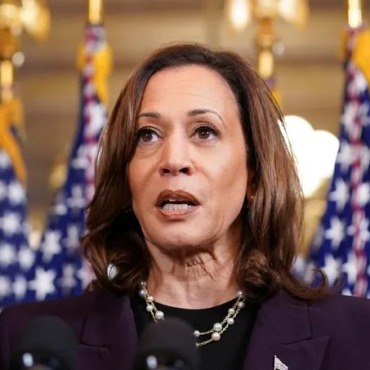Celebrities, key opinion leaders, and influencers play a major role in driving the adoption of Cryptocurrency and Blockchain Technology by educating their followers and highlighting new trends and opportunities.
However, there are cases where these influencers and celebrities overstep their reach by getting paid shills who take large allocations of coins to promote projects without proper disclosures. Sometimes, they endorse meme-coin scams and pump-and-dump schemes with or without being fully aware.
We want to examine the legal implications of this action, especially in Nigeria, but in comparison to other jurisdictions. When your favourite celebrity posts you into buying a coin on the promise of an amazing opportunity and then you lose all your investment to a rug pull the next day, is there a legal remedy?
Recent Case of Hawk Tuah
Haliey Welch, known mostly as the viral “Hawk Tuah” meme star, is facing criticism after her newly launched cryptocurrency nosedived in value a while after it got listed. Her “Hawk” digital coin hit a whopping $490m market cap shortly after it launched on Wednesday, before suddenly losing more than 95% of its value within hours.
Ms Welch and her team have been accused of misleading fans and investors and suggested the launch had been a rug pull, where promoters of a cryptocurrency draw in buyers, only to stop trading activity and make off with money raised from sales.
A community note on Ms Welch’s X post contests her explanation, saying her team had been selling their Hawk coins since launch, though she says in a later post that she and her Team have not sold any tokens.
Meme coins like this have been booming in popularity due to their jokey, cheap appeal to investors. They are often viewed as being less risky than more high-profile crypto assets like Bitcoin or Ethereum but carry the same dangers – with often no protection for those who lose money on them.
In 2021, Kim Kardashian was fined $1.26m by US regulators after she failed to disclose that she had been paid to post an advert for a cryptocurrency scheme called EthereumMax. Other Celebrities including Davido, and Floyd Mayweather among others have faced such levels of criticism. Several celebrities or influencers who have ventured into the crypto market have faced similar backlashes.
What legal responsibilities do crypto influencers have to ensure their token endorsements are not misleading (Nigeria)
The Securities Exchange Commission Nigeria has reviewed its guidelines to prescribe three-year jail terms for Nigerian celebrities and social media influencers who promote cryptocurrency platforms and assets without labelling their posts as sponsored content.
Following numerous reported scams orchestrated by cryptocurrency platforms which were highly promoted by public figures with large followers, SEC has revised its guidelines to slap stiff sanctions on celebrities supporting the fraudulent crypto sites.
“Finfluencers who receive compensation to promote digital asset products or services shall disclose this arrangement to their followers. Failure to do so will result in a penalty of not less than 10 million, imprisonment for up to three years, or both,” stated the SEC directive.
This comes as citizens count their losses after investing in fraudulent crypto platforms promoted by popular entertainment figures. Their misplaced trust in the celebrity leads them to blindly invest in any content posted on social media without conducting additional research.
SEC has also mandated celebrities and influencers to do their due diligence in verifying that their crypto client is SEC-licensed and approved before promoting their content.
“Finfluencers shall before engaging in any promotional activities verify that both the VASP, products and services they intend to promote are licensed or approved by the commission,” stated the SEC guideline.
The commission said officers would be actively monitoring online crypto promotions to fish out violators of the directive and initiate prosecution procedures.
It is, however, unclear whether the directive applies to popular social media platforms such as Instablog9ja, Gossipmill9ja and others who from time to time promote these crypto sites.
What legal responsibilities do crypto influencers have to ensure their token endorsements are not misleading (UK)
Finfluencers, or finance influencers, in the United Kingdom, are obliged to get registered. This term was born in the EU, and we even have a cool website created by the European Commission, which helps you understand what’s going on and what you are obliged to do. What’s interesting is that they don’t fall under criminal regulation, but other types of regulation.
The first regulation is consumer protection laws. They apply perfectly to this field. It means that they are obliged to disclose all information about commercial partnerships, and they are obliged to label the content they create.
If not disclosed, they can be fined and found liable under the Unfair Commercial Practices Directive, which is the second regulation. It covers things like hidden marketing. These are special rules that existed before meme-coins and crypto assets. Article 12 says that hidden marketing is prohibited and can result in civil and administrative penalties.
The third is the Markets in Financial Instruments Directive, which is applicable to all financial instruments in the EU, including crypto assets. It also contains rules regarding promoting financial instruments and securities.
In Hong Kong, there’s actually very clearly articulated law when it comes to criminal liabilities that could arise from offences to fraudulently or recklessly induce others to invest in virtual assets encapsulated within Section 53ZRG of the Anti-Money Laundering Ordinance.
This is a newly crafted law and a laudable one, it is necessary to regulate the loopholes enabling scams in cryptocurrency, in other to drive Blockchain adoption forward.







